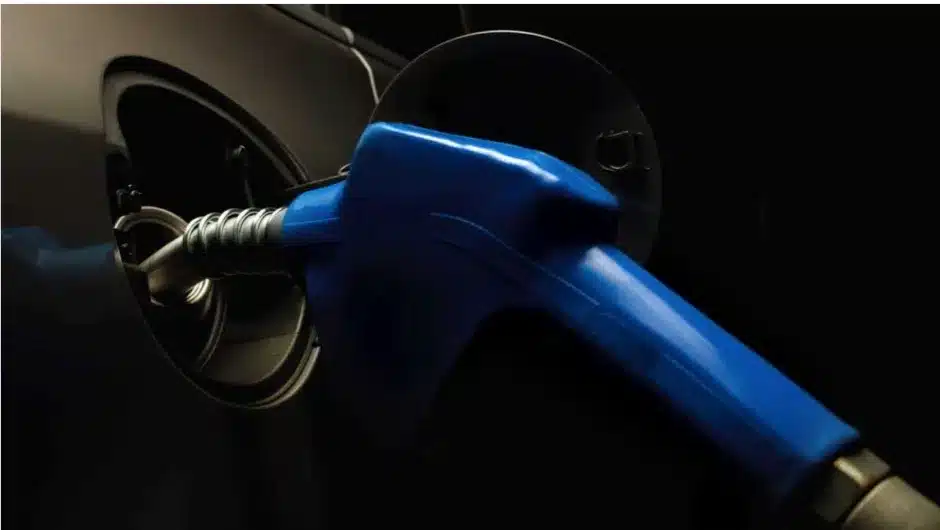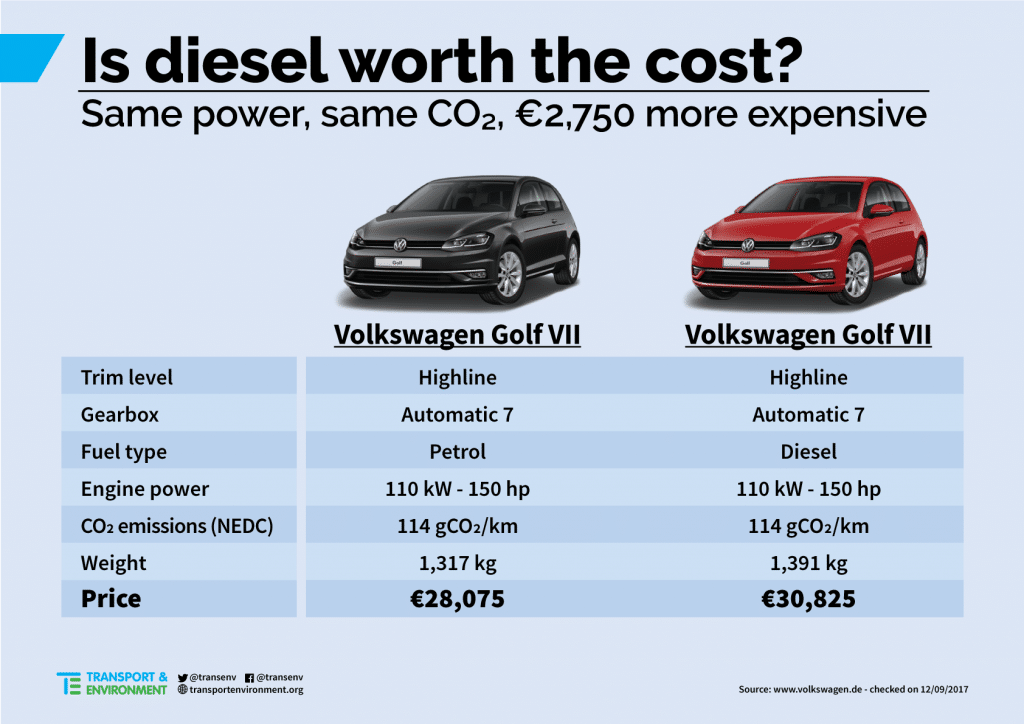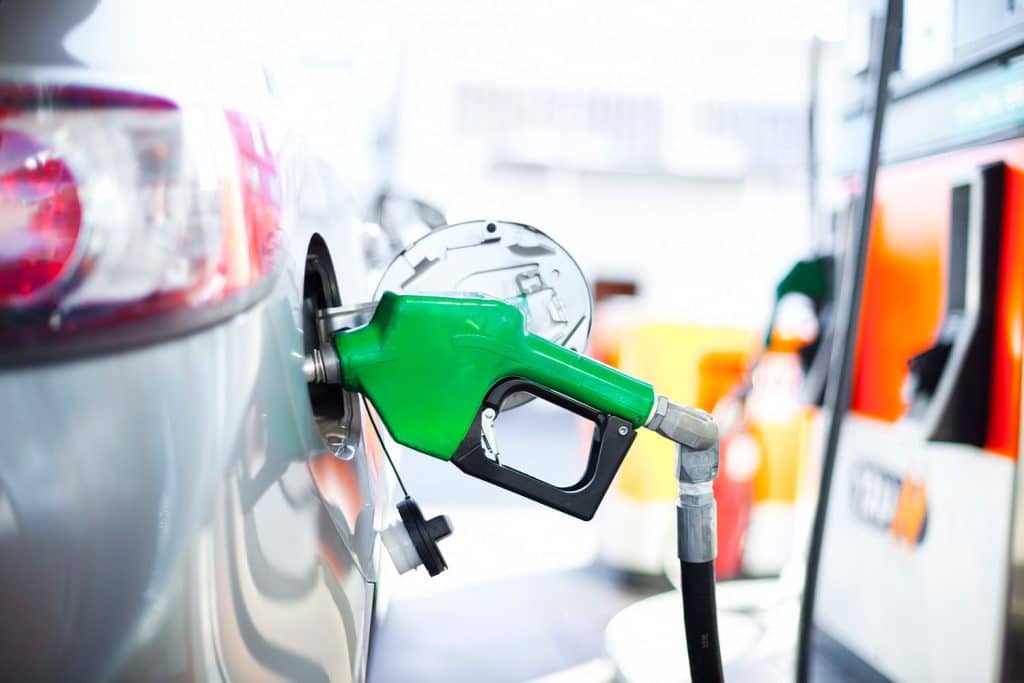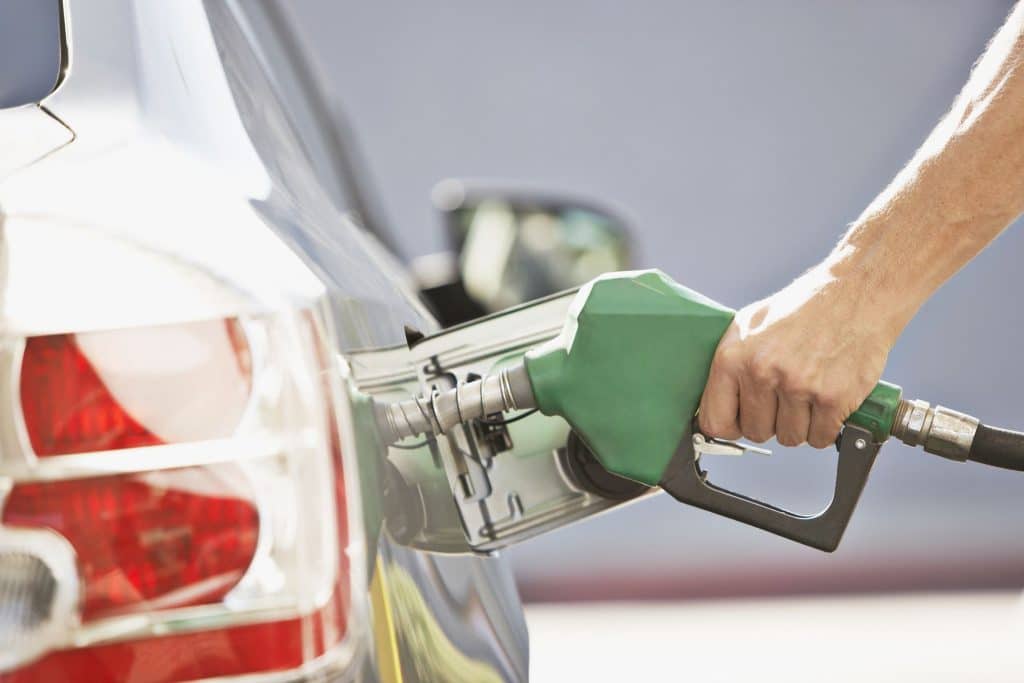Picture this: You’re driving down the road, enjoying the smooth purr of your diesel engine, when suddenly, disaster strikes. You accidentally fill up your tank with gasoline instead of diesel. Panic sets in as you wonder what the consequences will be. Will it ruin your engine? Will it cost a fortune to repair? In this article, we will explore the answer to the burning question: what’s worse, gas in a diesel engine? Brace yourselves because the answer might surprise you.
What Happens When Gas is Put in a Diesel Engine?
Combustion Issues
When gasoline is accidentally added to a diesel engine, it can lead to various combustion issues. Gasoline requires a spark from the spark plug to ignite, while diesel fuel relies on compression for combustion. The different gasoline and diesel ignition methods result in improper combustion when mixed. This can cause the engine to run poorly or not start at all. The combustion issues can also lead to knocking or pinging noises, rough idling, and even engine misfires.
Damage to Injectors and Fuel System
Gasoline is not designed for use in diesel engines, and its chemical composition can cause damage to the fuel system. Gasoline has a lower lubricity than diesel fuel, which means it doesn’t provide the same level of lubrication to the fuel injectors and other components. This lack of lubrication can increase friction and wear, leading to premature failure of the injectors and other fuel system parts. Additionally, gasoline can cause seals and gaskets to deteriorate, resulting in fuel leaks and further damage to the fuel system.
Poor Engine Performance
Mixing gasoline with diesel fuel can severely impact the engine’s performance. The combustion issues mentioned earlier can lead to decreased power output, reduced fuel efficiency, and overall decreased engine performance. The improper combustion also results in incomplete fuel burn, forming harmful byproducts such as carbon deposits. These carbon deposits can accumulate in the engine, affecting its performance and causing further damage.
Excessive Carbon Buildup
One of the consequences of gasoline contamination in a diesel engine is the excessive buildup of carbon deposits. As mentioned earlier, the improper combustion of the fuel mixture can result in an incomplete burn, leading to the formation of carbon deposits. These deposits can accumulate on various engine components such as valves, pistons, and cylinder heads. Over time, carbon buildup can lead to decreased engine efficiency, reduced power, and increased emissions. It can also affect the proper sealing of engine components, resulting in issues like compression loss and oil leakage.
Increased Emissions
When added to a diesel engine, gasoline can increase emissions of harmful pollutants. The improper combustion and carbon buildup caused by gasoline can lead to higher levels of carbon monoxide (CO), hydrocarbons (HC), and nitrogen oxides (NOx) being released into the atmosphere. These pollutants contribute to air pollution and negatively impact human health and the environment. In addition, the higher level of emissions can cause a diesel engine to fail emissions tests, leading to potential legal and regulatory issues for vehicle owners.
Effects of Gasoline in a Diesel Engine
Detonation and Pre-ignition
One of the significant effects of gasoline contamination in a diesel engine is the risk of detonation and pre-ignition. Detonation occurs when the air-fuel mixture ignites spontaneously and irregularly, causing a knocking or pinging sound. This can significantly damage the engine’s pistons, valves, and cylinder heads. Pre-ignition happens when the fuel ignites before the spark plug fires, resulting in a loss of power and potential engine damage. Both detonation and pre-ignition can occur more frequently when gasoline is present in a diesel engine, posing a serious risk to its overall health.
Lubrication Problems
Gasoline has lower lubricating properties than diesel fuel, which can cause lubrication problems in a diesel engine. The fuel injectors, which depend on proper lubrication for smooth operation, may experience increased friction and wear when gasoline is present. This can lead to injector failure and the subsequent loss of fuel delivery and engine performance. Additionally, gasoline’s lower lubricity can affect other engine components, such as the piston rings and cylinder walls, resulting in increased friction and potential damage.
Fouled Spark Plugs
In a diesel engine, using gasoline as fuel can lead to fouling of the spark plugs. Gasoline combustion produces more carbon deposits than diesel fuel, which can accumulate on the plugs, inhibiting their ability to produce a spark. Fouled spark plugs can cause misfires, rough idling, and a decrease in engine performance. If left unaddressed, fouled spark plugs can further damage the engine’s ignition system, resulting in costly repairs.
Clogged Catalytic Converter
The presence of gasoline in a diesel engine can also lead to a clogged catalytic converter. Gasoline produces higher levels of unburned hydrocarbons compared to diesel fuel, and these hydrocarbons can accumulate in the catalytic converter. Over time, hydrocarbons’ buildup can block exhaust gas flow through the catalytic converter, leading to decreased engine performance and increased emissions. A clogged catalytic converter may require replacement, which can be expensive and time-consuming.
Potential Engine Failure
Perhaps the most severe effect of gasoline contamination in a diesel engine is the potential for engine failure. The issues mentioned earlier, such as combustion problems, damage to fuel system components, and excessive carbon buildup, can all contribute to the failure of the engine. Engine failure can result in a complete vehicle breakdown, leaving the owner stranded and requiring extensive repairs. In some cases, the damage may be irreparable, necessitating the replacement of the entire engine, which is costly.
How to Identify Gasoline Contamination
Unusual Engine Sounds
One of the signs of gasoline contamination in a diesel engine is the presence of unusual engine sounds. Knocking or pinging noises can indicate improper combustion, detonation, or pre-ignition due to the gasoline in the fuel mixture. These sounds may be more noticeable during acceleration or under load. If you notice any unusual noises coming from your engine, it is essential to have it inspected by a professional mechanic.
Difficulty Starting the Engine
When gasoline is present in a diesel engine, starting the engine may become more challenging. Gasoline requires a spark from the spark plugs to ignite, and the presence of gasoline in a diesel engine can affect the ignition process. It may indicate gasoline contamination if you experience difficulty starting your diesel engine, especially after refueling.
Misfiring or Stalling
Gasoline contamination can cause misfiring or stalling of the engine. Misfiring occurs when one or more cylinders fail to ignite the air-fuel mixture properly, resulting in a loss of power and engine performance. Stalling, however, happens when the engine shuts off unexpectedly while running. If you notice your engine misfiring or stalling, it is crucial to have it inspected and diagnosed by a qualified mechanic.
Smell of Gasoline
Another telltale sign of gasoline contamination in a diesel engine is the smell of gasoline. It could indicate gasoline leakage or contamination if you detect a strong gasoline odor from your vehicle, especially near the fuel tank or in the engine compartment. It is essential to address this issue promptly to prevent further damage or safety hazards.
Unresponsive or Sluggish Acceleration
Gasoline contamination can affect the engine’s responsiveness and acceleration. A diesel engine running on gasoline may exhibit sluggish or unresponsive acceleration, making it difficult to maintain speed or pass other vehicles on the road. If you notice a significant decrease in power or acceleration, it may indicate gasoline contamination.
Steps to Take if Gasoline is Added to a Diesel Engine
Stop the Engine Immediately
If you realize that gasoline has been added to your diesel engine, it is crucial to stop it immediately. Continuing to run the engine on gasoline can cause severe damage and potentially lead to engine failure. Turn off the ignition and remove the key from the vehicle to prevent accidental restart.
Do Not Drive the Vehicle
Driving a diesel vehicle with gasoline can exacerbate the damage and increase the risk of engine failure. The improper combustion and lubrication issues caused by gasoline can cause further harm to the engine’s components. It is essential to avoid driving the vehicle if gasoline contamination is suspected.
Drain the Fuel Tank
To minimize the risk of engine damage, the contaminated fuel must be removed from the tank. This can be done by draining the fuel tank completely. Let a professional mechanic handle this task is crucial, as they have the necessary equipment and expertise to remove the fuel safely.
Clean or Replace Fuel Filters
Gasoline contamination can clog the fuel filters in a diesel engine, affecting the flow of fuel and potentially causing engine issues. Cleaning or replacing the fuel filters is necessary to remove any remaining contaminants from the fuel system. Again, it is best to rely on the expertise of a trained mechanic for this task.
Flush the Fuel System
After draining the fuel tank and cleaning or replacing the fuel filters, it is essential to flush the entire fuel system to remove any trace of gasoline. Flushing the fuel system involves circulating diesel fuel through the system to ensure that any remaining gasoline is eliminated. This process helps restore the engine’s proper operation and prevent further damage.
Preventing Gasoline Contamination in a Diesel Engine
Proper Fueling Procedures
To prevent gasoline contamination in a diesel engine, it is crucial to follow proper fueling procedures. When refueling, use the correct fuel nozzle and select the diesel fuel option at the pump. Double-check the fuel type selected and avoid distractions to ensure that gasoline is not accidentally added to the diesel tank.
Labeling Fuel Containers
When storing fuel or transporting it in containers, it is essential to label them clearly. Labeling the containers as either “Diesel Fuel” or “Gasoline” helps to prevent fuel mix-ups and reduces the risk of accidental contamination. Storing gasoline and diesel fuel containers separately is also a good practice.
Using Fuel Additives
Fuel additives can play a significant role in preventing gasoline contamination in a diesel engine. Diesel fuel additives, such as anti-gel, lubricity enhancers, and fuel stabilizers, can improve fuel performance and protect the engine from damage. Consult the vehicle owner’s manual or seek professional advice on which additives suit your diesel engine.
Regular Maintenance and Inspections
Regular maintenance and inspections are crucial for preventing gasoline contamination and ensuring the overall health of a diesel engine. Routine maintenance tasks, such as fuel filter replacement and fuel system inspections, can help promptly detect and address any potential issues. Regular engine servicing also promotes proper combustion and helps prevent the buildup of carbon deposits.
Awareness and Education
Increasing awareness and education about the risks of gasoline contamination in diesel engines can help prevent accidental mix-ups. Informing drivers about the importance of using the correct fuel and providing training on proper fueling procedures can significantly reduce the chances of gasoline being added to a diesel engine.
Professional Assistance for Gasoline Contamination
Towing the Vehicle to a Mechanic
If gasoline has been added to a diesel engine, it is crucial to seek professional assistance immediately. In most cases, the vehicle should not be driven and may need to be towed to a qualified mechanic. Attempting to drive the vehicle with gasoline in the engine can cause further damage and increase the risk of engine failure.
Diagnostic Testing
A professional mechanic will conduct diagnostic testing to assess the extent of the gasoline contamination and evaluate the engine’s overall condition. Diagnostic tests may include inspecting fuel samples, checking fuel system components, and conducting computerized engine scans. These tests help determine the necessary steps for repair and ensure that all potential issues are addressed.
Fuel System Cleaning
If gasoline has contaminated the fuel system, thorough cleaning is necessary to remove any residue and ensure proper operation. Fuel system cleaning involves using specialized cleaning agents and equipment to flush out any traces of gasoline and contaminants. This helps restore fuel system functionality and prevent further damage to the engine.
Repair or Replacement of Damaged Components
Once the extent of the damage is determined, the mechanic will proceed with the necessary repairs or component replacements. This may include repairing or replacing fuel injectors, spark plugs, fuel lines, or other affected parts. Prompt and accurate repairs are essential to avoid further complications and ensure the engine’s longevity.
Post-Repair Testing and Evaluation
After the repairs are completed, conducting post-repair testing and evaluation is essential. This ensures the engine functions correctly and all gasoline contamination issues have been addressed. Test drives and performance evaluations are typically conducted to verify the effectiveness of the repairs and ensure that the engine is operating at its optimal level.
Costs and Consequences of Gasoline in a Diesel Engine
Repair Expenses
Repairing a diesel engine that has been contaminated with gasoline can be a costly endeavor. The extent of the damage, the specific components affected, and the labor involved all contribute to the overall repair expenses. In some cases, the damage may be severe enough to require a complete engine replacement, one of the costliest repairs.
Towing and Transportation Costs
If a vehicle with a gasoline-contaminated diesel engine needs to be towed to a mechanic, additional costs will be involved. Towing services and transportation fees can vary depending on the distance and location. These costs can add up, especially if the vehicle needs to be transported over long distances.
Vehicle Downtime
Having a diesel engine contaminated with gasoline can result in significant vehicle downtime. While the repairs are being carried out, the vehicle may be out of commission, leading to inconveniences and potential disruptions to daily activities. The duration of vehicle downtime depends on the severity of the contamination and the availability of necessary parts and services.
Loss of Productivity
If the contaminated vehicle is essential for business or work purposes, the loss of productivity can have a significant impact. When a vehicle is taken off the road for repairs, it can disrupt schedules, delay deliveries, and affect overall productivity. This can result in financial losses and affect the reputation of the business.
Safety Risks
Driving a diesel vehicle with gasoline in the engine can pose safety risks. The engine may experience sudden power loss, misfires, or stalling, which can create hazardous situations on the road. Additionally, the potential for engine failure and breakdown can leave the driver and passengers stranded in potentially unsafe locations. It is crucial to address the issue promptly to ensure the safety of everyone involved.
Insurance and Warranty Considerations
Insurance Coverage for Contamination
Insurance coverage for gasoline contamination in a diesel engine may vary depending on the insurance policy. Some comprehensive auto insurance policies may cover damage caused by contamination, while others may have specific exclusions. It is essential to review the insurance policy and consult with the insurance provider to understand the extent of coverage in such situations.
Warranty Voiding
If a vehicle is still within the manufacturer’s warranty period, it is essential to consider the terms and conditions. Adding gasoline to a diesel engine may void the warranty if the manufacturer explicitly states that such damage is not covered. Vehicle owners should familiarize themselves with the warranty provisions and consult the manufacturer or authorized service center for guidance.
Manufacturer’s Recommendations
Following the manufacturer’s recommended fuel type and maintenance procedures is crucial for the longevity and performance of a diesel engine. Deviating from these recommendations, such as adding gasoline to a diesel engine, may affect the vehicle’s operation and warranty coverage. It is essential to adhere to the manufacturer’s guidelines to maintain the validity of the warranty.
Extended Warranties
If a vehicle has an extended or aftermarket warranty, it is essential to review the terms and conditions to understand the coverage for gasoline contamination. Extended warranties may provide additional coverage beyond the manufacturer’s warranty, but the specifics of coverage should be clarified with the warranty provider.
Policy Exclusions
Some insurance policies and warranties may have exclusions related to gasoline contamination in a diesel engine. Reviewing these policy exclusions carefully is essential to understand what damages or situations are not covered. Awareness of these exclusions can help vehicle owners make informed decisions and take preventative measures to avoid potential issues.
Common Misconceptions about Gasoline in Diesel Engines
Adding Diesel to Dilute Gasoline
One common misconception about gasoline in a diesel engine is the idea of adding diesel fuel to dilute the gasoline. This approach is not recommended and can worsen the situation. Mixing gasoline and diesel fuel can lead to further combustion issues, engine damage, and increased emissions. It is essential to address the contamination adequately by following the earlier steps.
Running the Engine to Burn Off Gasoline
Another misconception is that running the engine for an extended period can burn off the gasoline and solve the problem. This approach is ineffective and potentially harmful to the engine. Gasoline contamination requires appropriate repairs and cleaning procedures to ensure the engine’s proper functionality, preventing further damage and complications.
No Immediate Effects
Some individuals may mistakenly believe that gasoline contamination in a diesel engine has no immediate effects and can be ignored. However, the presence of gasoline can lead to significant damage, poor engine performance, and safety risks. Ignoring gasoline contamination can result in costly repairs and potential engine failure. It is crucial to take immediate action if contamination is suspected.
Conclusion
Gasoline contamination in a diesel engine can severely affect the vehicle’s performance, health, and safety. It is essential to be aware of the risks and take preventative measures to avoid fuel mix-ups and contamination. If gasoline is accidentally added to a diesel engine, prompt action is crucial to minimize damage and prevent engine failure. Seeking professional assistance, thoroughly cleaning the fuel system, and proper repairs are essential to address gasoline contamination. By understanding the risks, taking preventative measures, and acting promptly, the adverse effects of gasoline in a diesel engine can be mitigated, ensuring the longevity and optimal performance of the vehicle.







